Does a Hot Water Heater Need a GFCI Outlet or Breaker: Safety Recommendations
Hot water heaters are a crucial component in providing comfort and convenience in our homes. However, safety is a paramount concern when it comes to electricity and water in close proximity. One key measure that has been widely implemented to ensure electrical safety is the Ground Fault Circuit Interrupter (GFCI), which is designed to protect against electrical shocks caused by ground faults or unintended electrical paths.
In general, you should plan to install a GFCI breaker when installing your hot water heater to ensure electrical safety. Because hot water heaters are often wired directly into your home’s electrical system, a GFCI outlet usually isn’t appropriate.
In the following discussion, we will explore these factors, along with examining the role GFCI plays in ensuring overall electrical safety in various residential settings.
Hot water heater and GFCI protection
The question of whether YOUR hot water heater specifically needs a GFCI connection can vary based on several factors, including local building codes and the type of water heater in question.
Do Electric Water Heaters Need GFCI Protection?
GFCI (Ground Fault Circuit Interrupter) protection is a safety measure designed to minimize the risk of electric shock. It is commonly used for outlets in areas prone to moisture or where water may come into contact with electrical appliances.
For electric water heaters, GFCI protection can be seen as an added safety measure, although not always required by code. Electric water heaters consist of heating elements, electrical components, and wiring, which all need proper installation to ensure safe operation. If any of these components encounter moisture or are improperly installed, it may lead to a ground fault causing electric shock.
In some cases, installation codes may require GFCI protection for specific appliances, such as in a damp environment or when in close proximity to water sources. Always consult your local electrical code and guidelines before installing an electric water heater.
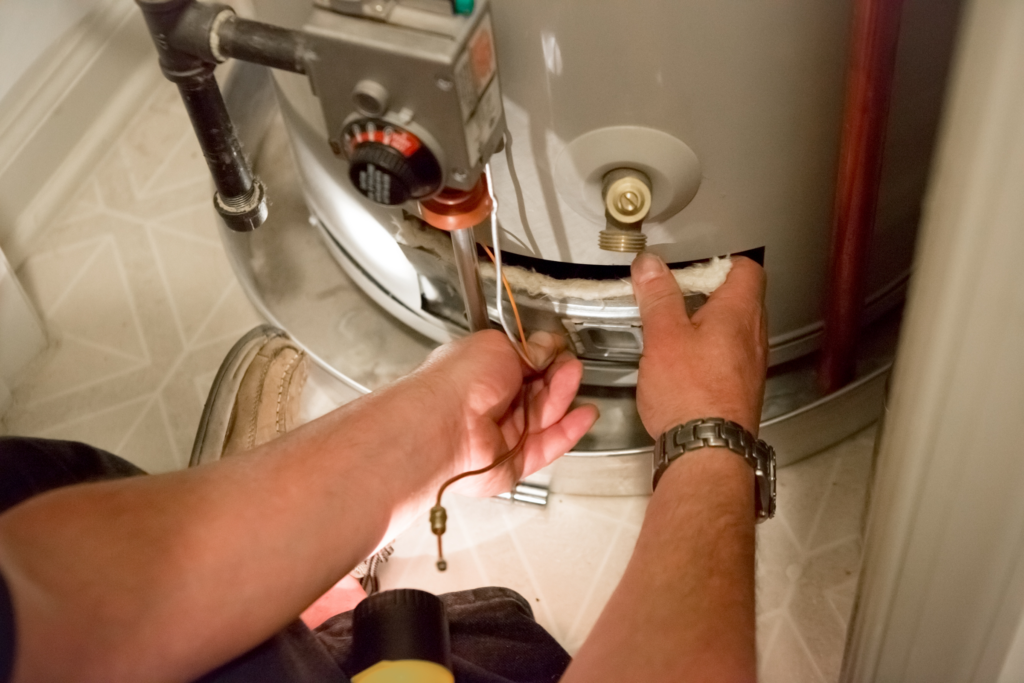
Manufacturer Recommendations
Manufacturers may provide recommendations on whether GFCI breakers or protection is necessary for their specific electric water heaters. It is essential to follow these recommendations for safe and proper installation.
Keep in mind that not all water heaters are the same size or have the same electrical requirements. This means that the need for GFCI protection may vary depending on the specific model and its components. Refer to the manufacturer’s product documentation for guidance on GFCI protection and proper installation.
While GFCI protection may not always be required by code or manufacturers for electric water heaters, it serves as an important safety measure in specific situations. Be sure to consult local guidelines and manufacturer recommendations to ensure a safe and compliant installation.
What Is GFCI and Its Purpose
A Ground Fault Circuit Interrupter (GFCI) is an electrical safety device designed to prevent electrical shocks by detecting ground faults and interrupting the flow of electric current.
Understanding GFCI Protection
A GFCI functions by comparing the amount of current going into a circuit to the current coming out of it. When there’s an imbalance, which indicates a ground fault, the GFCI immediately cuts off the power supply to the circuit.
For example, if a faulty electrical appliance or wiring causes a ground fault, the GFCI will trip and cut off power to that device, preventing an electrical shock hazard. GFCIs are commonly used in areas with close proximity to water sources, such as kitchens, bathrooms, and garages, where the risk of electrical shock is higher.
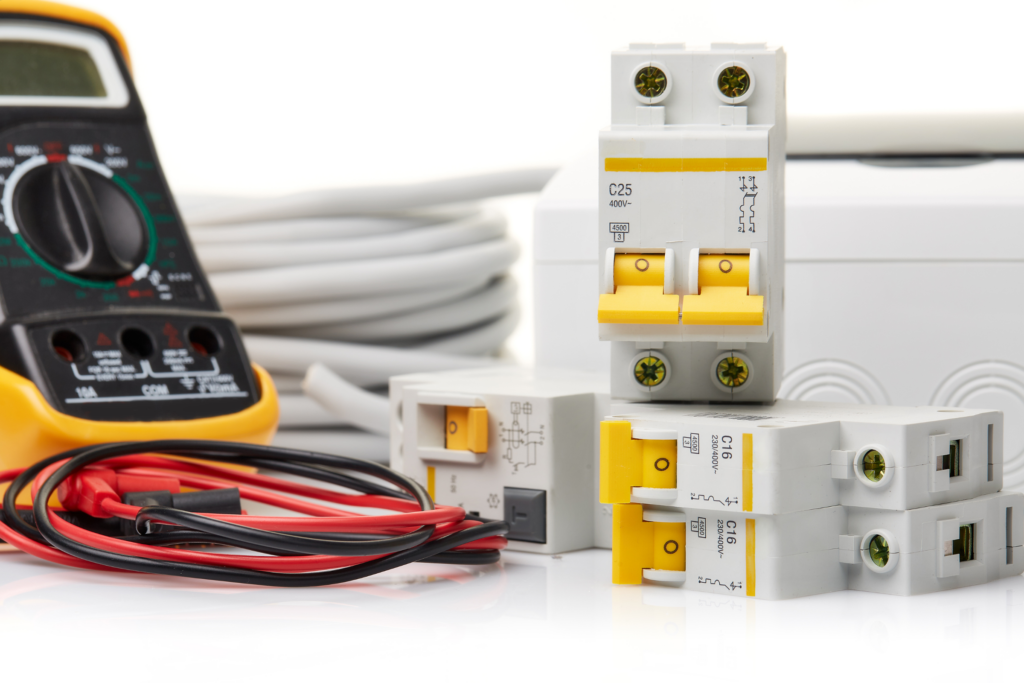
Safety Benefits of GFCIs
GFCIs provide a crucial safety measure for protecting people from electrical hazards. Some of the primary safety benefits of GFCIs include:
- Prevention of electrical shocks: GFCIs detect ground faults and interrupt the current flow, thereby preventing electrical shocks that could result from faulty appliances or wiring.
- Reduced risk of electrocution: By quickly disconnecting power when a ground fault is detected, GFCIs minimize the likelihood of serious injury or death due to electrocution.
- Enhanced safety for electric water heaters: The use of GFCI protection for electric water heaters can help to minimize the risk of electrical shock, providing homeowners with peace of mind.
GFCIs are a vital safety feature, and their usage in different areas of the home, including around electric water heaters, can significantly decrease the risk of electrical accidents.
As you continue reading, you will learn more about the various aspects of GFCIs and their application in hot water heater installations.
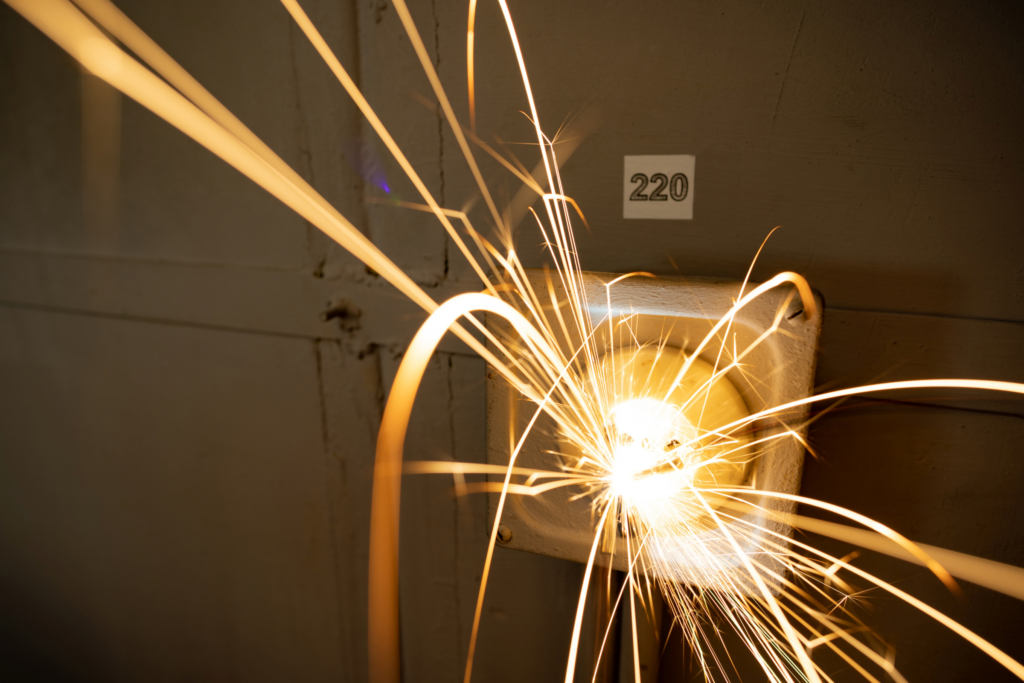
NEC Requirements for GFCI Protection
The National Electrical Code (NEC) is a set of safety guidelines and standards that govern the design, installation, and inspection of electrical systems in the United States.
Why the National Electrical Code Emphasizes GFCI
The primary goal of the NEC is to protect the public from potential electrical hazards such as fire, electric shock, and electrocution. As part of its ongoing commitment to safety, the NEC has established guidelines on the use of Ground-Fault Circuit Interrupters (GFCIs) in specific locations and applications to help prevent electrical incidents.
The importance of GFCI protection stems from its ability to quickly detect ground faults and cut off the power supply, reducing the risk of electrical shocks and fires caused by such faults.
The NEC updates and revises its guidelines every few years, encompassing the latest technology developments and best practices for electrical safety. One of these revisions has expanded the requirements for GFCI protection in various settings, such as residential, commercial, and industrial spaces.
The NEC requirements for GFCI protection vary depending on the specific location and equipment in question. For instance, hot tubs and spas require GFCI protection due to the potential safety hazards posed by water and electricity combined.
Although the NEC does not specifically mention hot water heaters under GFCI protection requirements, it is essential to comply with local building codes and regulations and consult with electrical inspectors to ensure safety and adherence to all relevant guidelines.
Locations where you need a GFCI
The NEC requirements for GFCI protection vary depending on the specific location and equipment in question. For instance, hot tubs and spas require GFCI protection due to the potential safety hazards posed by water and electricity combined.
Let’s look at the most commonly cited areas for GFCI protection.
Indoor Areas
GFCI (Ground Fault Circuit Interrupter) protection is crucial in various indoor areas where there is a risk of electrical shock due to moisture or water presence. Some common indoor locations where GFCI protection is essential include:
- Bathrooms: All receptacles in bathrooms require GFCI protection to prevent accidents caused by contact with water.
- Kitchens: Outlets that serve countertop surfaces, sinks, and within 6 feet of a water source must have GFCI protection.
- Laundry Rooms: Any receptacles within 6 feet of a sink or water source in laundry rooms should be GFCI protected.
- Basements and Garages: Unfinished basements, garages, and crawl spaces with receptacles must have GFCI protection to prevent hazards in damp environments.
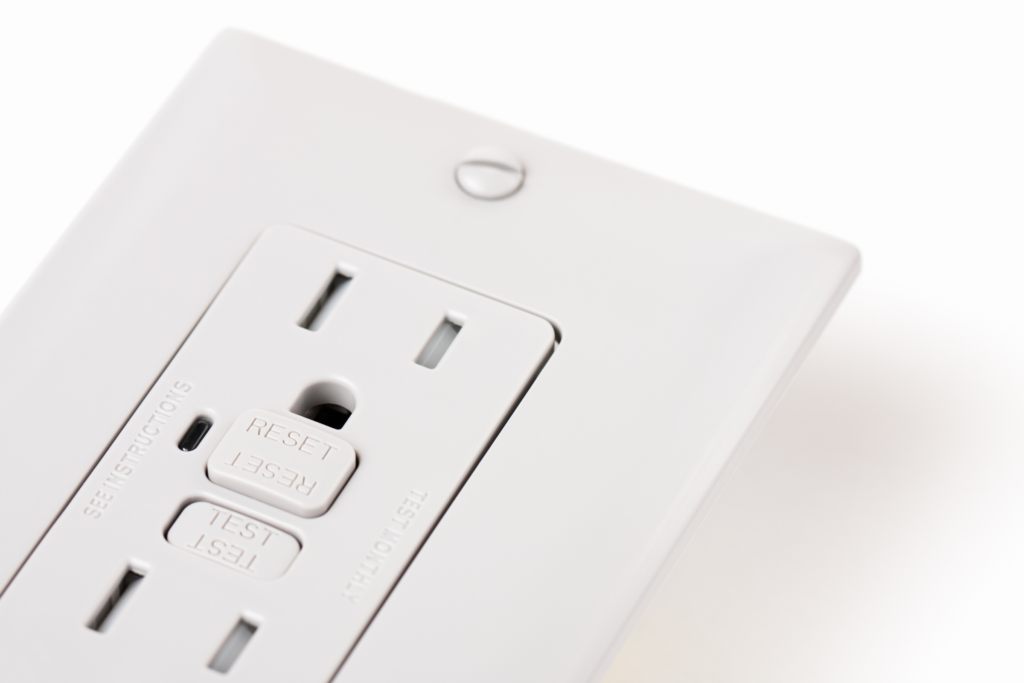
Outdoor Areas
GFCI protection is just as crucial in outdoor locations where water and weather elements increase the risk of electrical shock. Common outdoor areas where GFCI protection is necessary include:
- Dwelling Units: Exterior receptacles should have GFCI protection to ensure safe outdoor utilization of electricity.
- Boathouses and Non-Dwelling Occupancies: GFCI protection is necessary for receptacles near water sources and boathouses, as they are prone to moisture exposure.
- Rooftops: Outlets installed on rooftops must be GFCI protected to minimize potential hazards from water or moisture intrusion.
It is crucial to identify the specific areas where GFCI protection is necessary and implement necessary measures to ensure safety in both indoor and outdoor locations. Transitioning from locations that require GFCI protection, the next section will focus on selecting the appropriate type of GFCI for different usage scenarios.
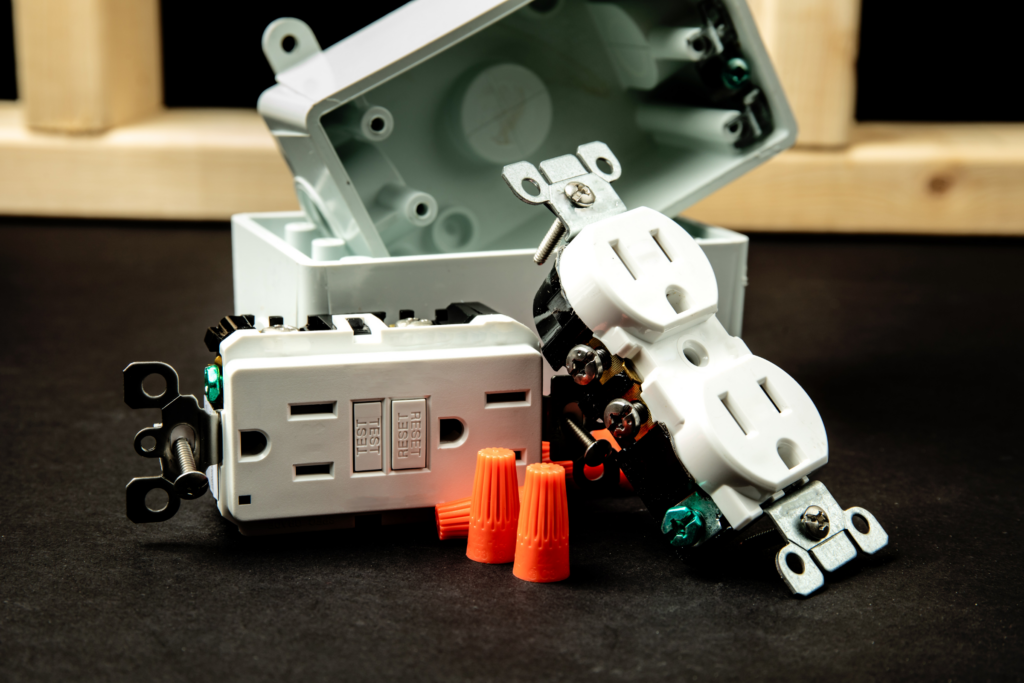
Installing and Testing GFCI Protection
Installing GFCI protection for a hot water heater is important for safety reasons and to prevent electrocution.
Homeowners and contractors should work with a licensed electrician who has experience with these types of installations. It’s essential to follow the manufacturer’s guidelines and adhere to local code requirements.
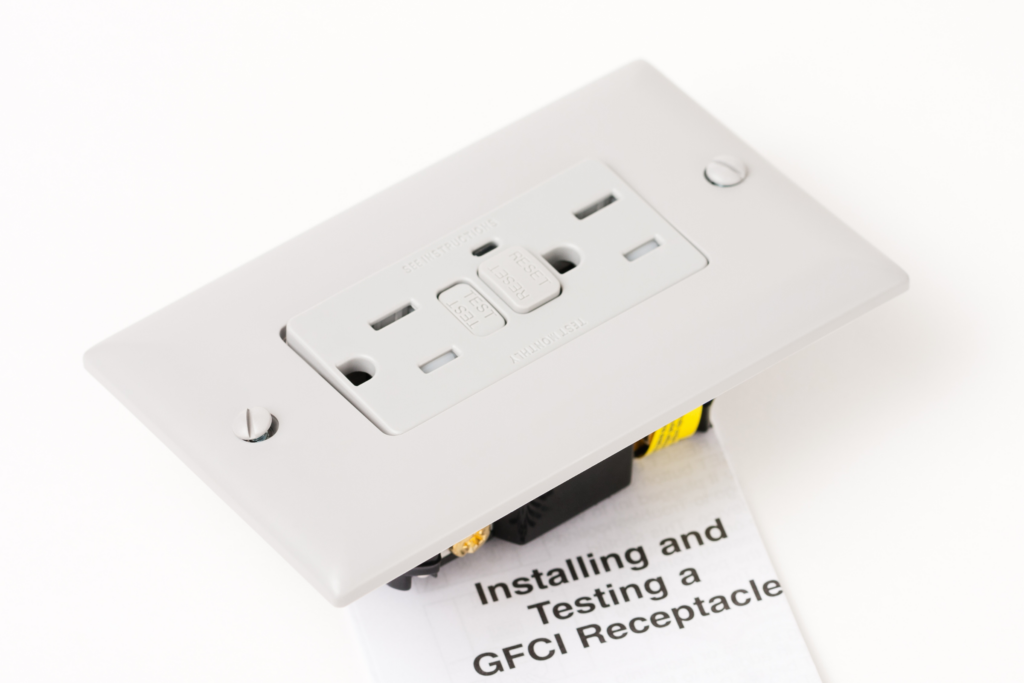
Working with a Licensed Electrician
A licensed electrician can help ensure that the installation of the GFCI protection is done correctly. They have the necessary knowledge and expertise in dealing with 120-volt and 220-volt single-phase systems as well as lighting outlets and hardwired connections. The electrician will work with homeowners and contractors to ensure all electrical components and wiring are in compliance with the local codes and safety standards.
The licensed electrician will ensure the GFCI is installed according to the manufacturer’s instructions, including proper wiring and placement of the device. It’s essential to test the GFCI after installation to ensure that it is functioning correctly.
Regular testing of the GFCI is crucial for safety reasons. Manufacturers typically recommend that GFCIs be tested monthly. A simple test involves pressing the test button on the device and verifying the proper function by observing a tripping response.
By properly installing and testing GFCI protection for hot water heaters, homeowners can reduce the risk of accidents and electrocution. They can also ensure that their dwellings meet the safety standards required by inspectors and local code regulations.
Additional Considerations for hot water heater safety
When considering whether a hot water heater needs a GFCI, it’s essential to take additional factors into account, such as regular maintenance and inspections. These elements play a vital role in ensuring the safety and efficiency of your hot water heater.
Regular Maintenance of your hot water heater
Proper maintenance can greatly extend the lifespan of your hot water heater and minimize the risks associated with damaged components.
Some key maintenance tasks include:
- Checking for leaks: Periodically inspect your hot water heater for any signs of leaks, as these can potentially cause electrical hazards or damage to other appliances, such as dishwashers.
- Circuit breaker panel: Ensure that your hot water heater is connected to a single-phase branch circuit and that the circuit breaker panel is functioning correctly. In case the GFCI trips, you should be able to easily reset it without any complications.
- Cleaning and upkeep: Regularly clean and maintain your hot water heater to prevent sediment build-up, which can ultimately lead to decreased efficiency and potential damage.
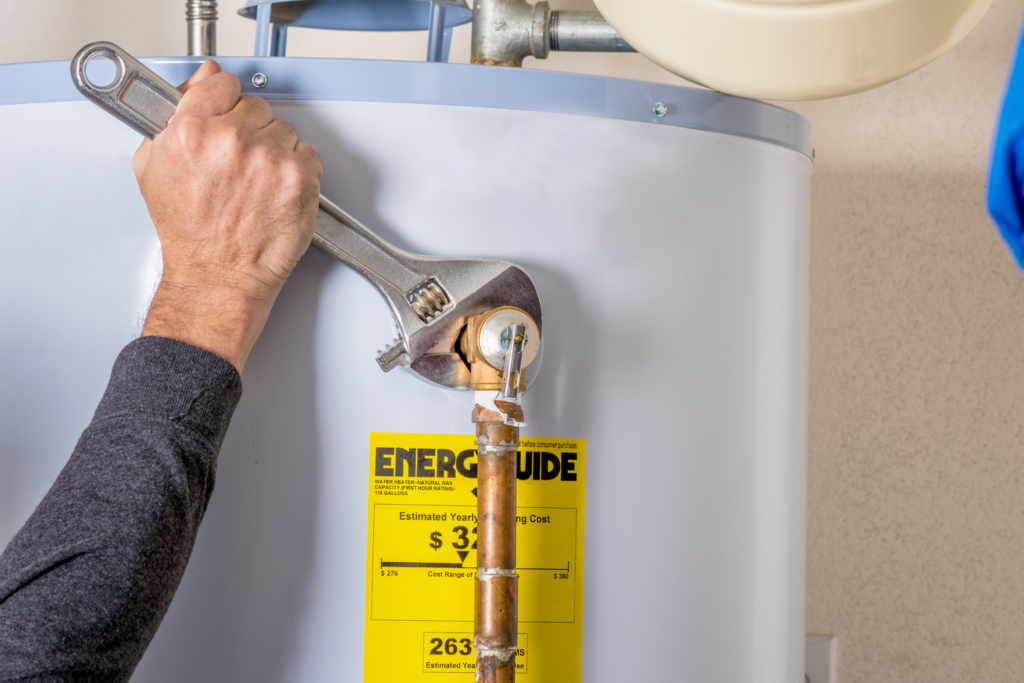
Inspecting your hot water heater
In addition to regular maintenance, periodic inspections by a qualified professional are crucial for identifying and addressing any potential issues. Inspections can cover several aspects, such as:
- GFCI functionality: The professional inspector can verify whether your hot water heater requires a GFCI and test its functionality to ensure it is providing the necessary protection.
- Single-phase branch circuits: The inspector can examine your hot water heater’s connection to single-phase branch circuits to confirm that it is properly installed, reducing the risk of electrical malfunctions.
- Safety measures: The inspection should cover all the associated safety measures, including proper grounding and adherence to local codes and regulations. This can help protect both your family and your appliance.
Taking these additional considerations into account can help you make an informed decision about whether or not your hot water heater needs a GFCI. In the next section, we will discuss further aspects that may influence your decision.
Let Us Know How We’re Doing!
Did this expertly prepared resource answer your question?
Do you have another question about home maintenance, home improvement projects, home appliance repair, or something else?
Get more information, send in questions and keep the discussion going by contacting the I’ll Just Fix It Myself company customer service team at at 1-800-928-1490 or Email us at [email protected]
